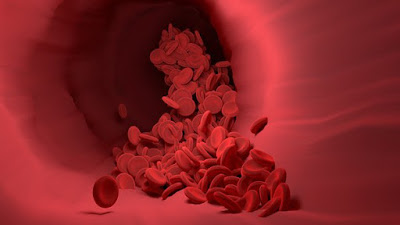Blood Transfusion
Minggu, 03 November 2019
Edit
BLOOD TRANSFUSION

What is a blood transfusion
Blood transfusion is a process of channeling blood from one person's body to another person's circulatory system. Blood transfusion is done for people who need blood or lack of blood. This process is only done on people who have the same blood type. To carry out this blood transfusion must meet the conditions recommended by doctors. So as not to cause undesired events.

Blood transfusion procedure
Blood transfusion is a pretty risky action. If during the transfusion did not pay attention to the procedures specified then it does not rule out the possibility that the blood transfusion process will fail or cause danger to the recipient of the blood.

Here are some procedures that must be considered when performing a blood transfusion:
The recipient and donor blood groups must be the same
The donor must check his blood type first if he does not know his blood type. If the blood type matches, the transfusion can be continued. If it is not suitable, it will endanger the health of the recipient of blood.
In addition to the checking method, to find out the blood match can be cross matching method. Cross matching is done by dripping donor blood into a container containing the recipient's blood. If it merges, then the blood matches.
Donors do not experience low blood pressure
In addition to matching the donor's and recipient's blood, the donor's blood must also be checked for blood pressure. If the donor experiences low blood pressure or high blood pressure, the transfusion process is not continued.
Donor sugar levels must be normal
If the donor has a high sugar content, transfusion is not recommended. because high sugar levels will be difficult to blend with the blood of recipients.
Do not consume drugs
Donors who want to do a transfusion are advised not to take drugs within 3 hours before transfusion. Because it is feared that the side effects produced by the drug are carried in the blood of the recipient.
Donors must be free from infectious diseases
donors must also test bacteria and viruses. If the germ of the disease is found in the body of the donor, the transfusion will not be continued, because the virus will easily develop through the process of blood transfusion.

Blood transfusion risks
In performing blood transfusion in addition to getting benefits, blood transfusion also has a risk that is quite dangerous. The following dangerous risks due to blood transfusion:
Allergies
Allergies can occur after a person has a blood transfusion. Allergies can occur because the immune system reacts with proteins or other substances that take place in the blood recipient of blood transfusions. Usually characterized by redness and itching appear on the skin. If itching continues for a long time, see a doctor immediately.
Injury to the lungs
Blood transfusion can endanger the health of our lungs. Because during a lung transfusion can reduce oxygen levels in the lungs of the person, causing the person to experience shortness of breath.
Fever
Fever can occur when we do or after a blood transfusion. Fever is not dangerous, if left unchecked it will threaten the lives of people who have blood transfusions.
Infection
Infection can be transmitted through people who transfuse their blood. Whether it's a dangerous infection or not. We recommend that when donating blood must follow the conditions set by the doctor. So that nothing unexpected happens.
Graft Versus Host Disease (GVHD)
This risk must be watched out after the blood transfusion process, because this can endanger the body of the transfusion recipient. This risk occurs because the body's power system is very low and the recipient receives many white blood cells from the donor. White blood cells can attack the recipient's body tissue.
Those are some of the risks that result from blood transfusions. If your body experiences risks like the above, go to the doctor immediately to get the right treatment.

Blood transfusion side effect
Besides causing quite dangerous risks if not done properly, blood transfusions also cause some side effects. There are some side effects that you should know after having a blood transfusion, namely:
- Headache
- Fever
- Itchy
- It's hard to breathe
- Reddened skin
If you have a blood transfusion more than once, you may experience a breakdown in your immune system. Because your immune system's reaction to new blood enters the body.

Blood transfusion process
If the checking process has fulfilled all procedures and passed all the transfusions will be carried out immediately. Then, how the hell the transfusion process? In accordance with his understanding, that the transfusion is channeling or donating blood.
The process is blood is channeled through a needle that has been connected with a tube and the hose is connected to a blood bag. After blood has collected in the sac, blood must be immediately transferred into the recipient's body through a tube and syringe. In making the collection must be done carefully so that no symptoms of other health problems appear to the recipient.
This process can take about 30 minutes to 4 hours depending on how many blood bags are needed, usually the blood from the donor is taken around 0.48 liters. Donors who have already donated may not donate more than once in 2 months.
Well, now you already know what a blood transfusion is, what the procedure is and the process. If you want to do a blood transfusion, you must pay attention to procedures that have been set so as not to cause risks and side effects. Hopefully useful and happy reading this article.
Author : Lailatul Hidayati
